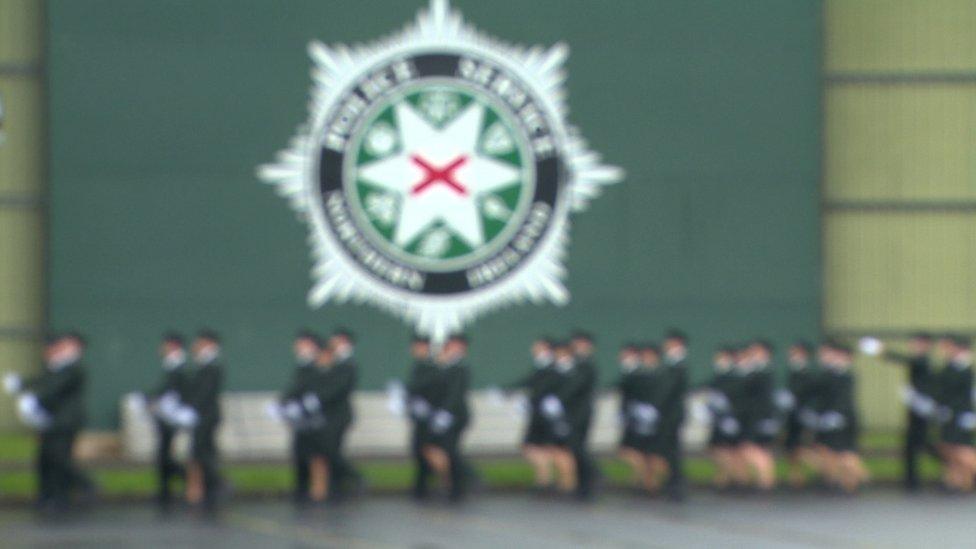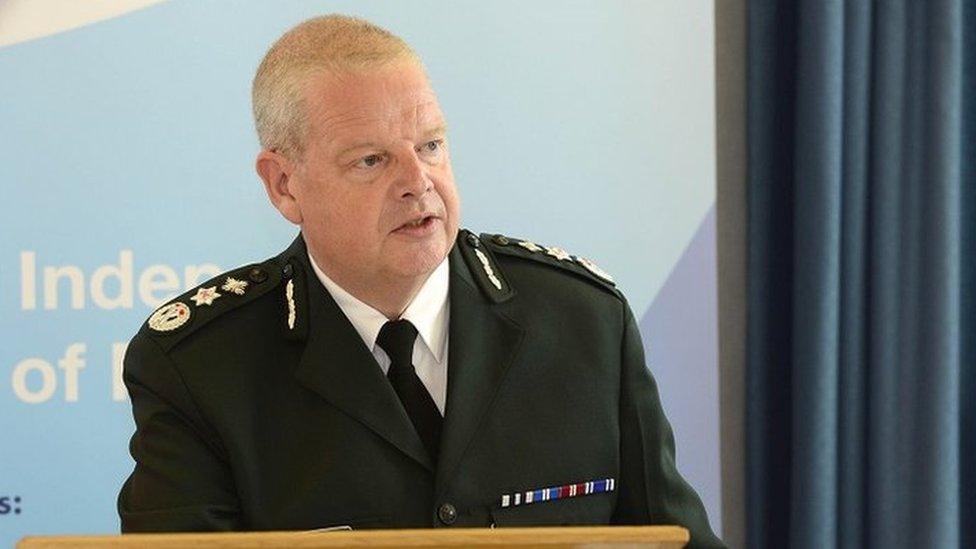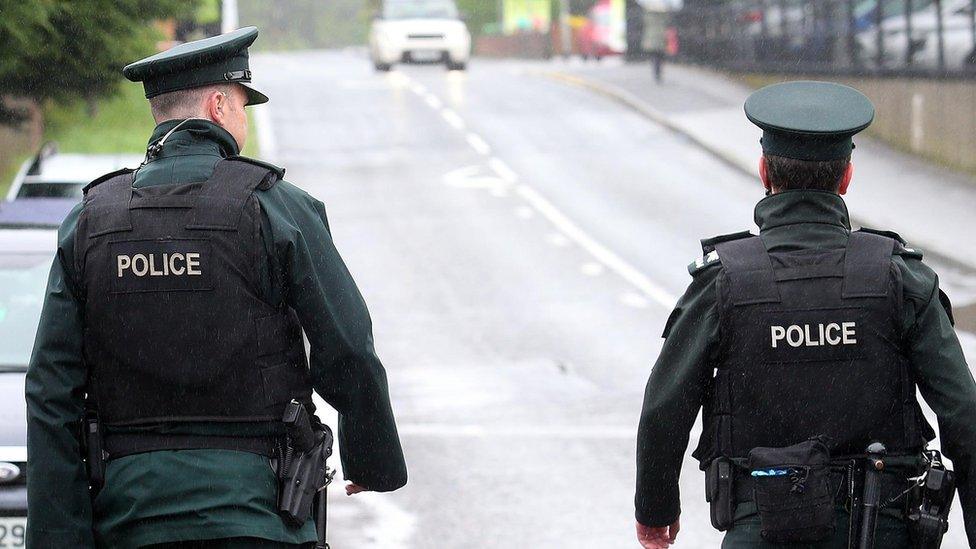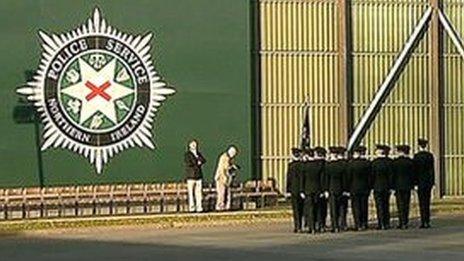PSNI numbers at 'dangerous' level says Sir Hugh Orde
- Published
'The threat in Northern Ireland has never gone away'
Former PSNI Chief Constable Sir Hugh Orde has said officer numbers are at a "dangerous" level in the face of increased dissident republican attacks.
Police numbers are currently 800 below what was suggested when the PSNI was formed in 2001.
Sir Hugh also said consideration should be given to re-introducing a controversial hiring policy to address low numbers of Catholic recruits.
He said it is "a shame" Catholic recruitment is slowing down.
The current chief constable, Simon Byrne, wants money found to increase police numbers to the 7,500 suggested under Patten reforms two decades ago.
In September 1999, the report of the Independent Commission on Policing for Northern Ireland, chaired by Lord Patten, signalled major reforms and the beginning of the end of the Royal Ulster Constabulary (RUC).
The Police Service of Northern Ireland replaced the RUC in November 2001.
Sir Hugh led the PSNI between 2002 and 2009.
During his time there was legislation which helped take the proportion of Catholics in the police from 8% to 30%.
But the legislation ended in 2011 and Catholics currently make up 32% of the PSNI, with a risk of it falling back soon.

A new PSNI recruitment drive is to be launched in January 2020
Mr Byrne does not favour the re-introduction of 50-50 recruitment - which was one Catholic recruit for every one person from a Protestant or other background.
Talking to BBC News NI, Sir High said he was "really worried" by the situation.
He has backed Mr Bryne's call for more officers, particularly at a time when New IRA and Continuity IRA attacks are on the rise.
"The threat is still there and with the current politics, and Brexit being woven into that, I think there is a real risk the threat will increase," said Sir Hugh.
"I am not persuaded the number they currently have is sufficient."
A new PSNI recruitment drive is to be launched in January.
- Published22 August 2019

- Published3 March 2019

- Published4 November 2011

- Published12 January 2011